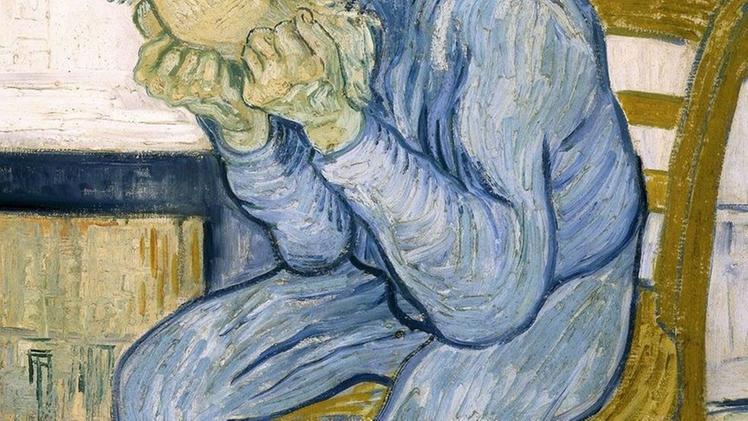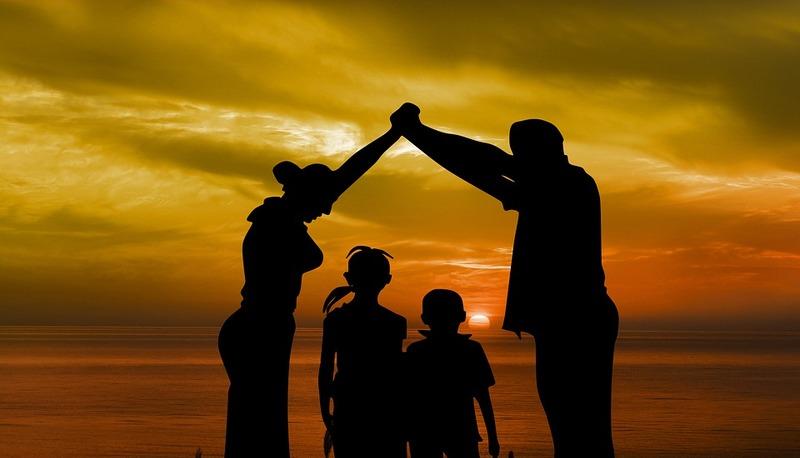Teens caught in trap of “But I like it…”. Social Networks’ “Like It” and “Don’t like it” as today’s ethical boundaries
Last year, my nephew’s friend, a beautiful, radiant girl from a close-knit
family, took her father’s pistol and killed herself, leaving behind no more
than a few words. Empty, meaningless days.
News increasingly reports stories of teen self-destruction, as if an
invisible tide had swept away their energy to live. Besides news, which can
be falsified by sensationalism, anyone who deals with children knows that
the awful lot of so many young people today is despair.
A muffled, resigned despair that leads to a disordered self-destructive
life, if not a pathological apathy. It’s becoming more common for young
people to decide, from one day to the next, to quit school without any real
reason, closing themselves in their rooms to live a purely virtual life: a
syndrome that has spread throughout Japan in the last decade. There are
even youth today who are in a constant state of dizziness, be it for
excessive alcohol consumption or for a prolonged use of drugs. The feeling
you get is that of riding a wave that keeps you on the surface of reality.
The possibility of intervention becomes more and more difficult to imagine
when confronted with the eruption of the digital world, the subsequent
dematerialization of real senses, the dominance of chatter, the crumbling
of what were 30 years ago educational realities (e.g. school, church,
family) and the imposition of a world that has been dramatically feminized,
i.e. a world deprived of any principle of authority that helps lift one’s
gaze beyond the horizons of a hushed sentimentalism.
Yet we must begin somewhere. The suffering that these teens experience, as
a product of their incapacity to channel that magnificent energy proper to
their age, is becoming unbearable. First of all, given that we are not
monads without doors or windows, but we come rather from a social context
(in which one day we will be called to actively participate), let us ask
ourselves what our society offers to those who come into the world. The
first social environment in which children are introduced is the park-
often times dirty, shabby, and covered in writing. Then there is school.
The majority of school buildings are in absolutely degrading conditions.
And we are not talking about the need to have electronic whiteboards; just
simple walls, desks, and toilets. And this deterioration unfortunately
applies not only to the exterior environment, but also to the quality of
teaching. Underpaid teachers, subject to the tyranny of continual
insecurity and reduced to educational impotency through parents’ constant
interference, are dejected in their desire to be a fundamental part of the
educational process necessary for the person and society.
My niece transferred from her Italian high school to study abroad in a
German school. The first thing she said to me was, “Auntie, it’s
incredible. Here, they respect you. They push you to give the best of
yourself. Students actually compete to be the best. But then when I return
to Italy and see my old friends, they compete to be the worst. The one who
lands the worst grade is made the hero among his friends.” A vital step to
initiate a true change would be to stop considering school simply as a
place for electoral and trade union negotiations. We must then set as our
primary goal the reconstruction of an educative social fabric based on
intergenerational respect, and renewed buildings, restoring authority to
teachers and severely limiting the continuous and damaging intrusions of
families in the schools. Encouraging each person to give his/her best is
the only foundation upon which a civil society, worthy of such a name, can
be built. Trash parks and schools help us to produce that which we have
right in front of our eyes every day: a society that increasingly goes down
the path of incivility, cynicism, ignorance, and outright arrogance. Sure
there are the media who exaggerate everything, and there are time periods
that undergo drastic change, but underneath all of this, there is always
the human being. And the human being, despite the constant attempts of
manipulation we see, possesses a specific nature. Then if we really want to
try to change something, it is precisely upon his nature that we must act.
“But do you really still believe in the existence of good and evil?”, a
journalist asked me about fifteen years ago. The question shocked me
because up until that moment, I had always considered the existence of
those two polar ends to be an evident foundation of reality. Then
unexpectedly, I discovered that it wasn’t. That which I believed to be
foundational wasn’t more than a mere residue of an archaic belief. In a
world exalted by the media, good and evil don’t have much reason to exist;
“I like it” and “I don’t like it” have become the world’s ethical boundary.
Does the human being find his fulfillment in “I like it” and “I don’t like
it”? Or are we dealing rather with a pious anesthesia to prevent people
from lifting their gazes and taking the risk to ask the bigger questions?
Erasing the line between good and evil transforms an indispensable choice
into something overwhelmingly relative. This reality has swept young
generations into this state of deterioration deprived of horizons. The
human person, in order to truly become such, needs challenges. And the
first challenge is knowing what is right and what is wrong, in order to
then choose what side to be on.
The other axis of the Cartesian reference is that of time. Without the
awareness that living, before anything else, is faced with an end (i.e.
with the darkness that awaits us all), it is impossible to build a real
path of growth. To grow old means to grow in wisdom, and it is in this
growth that the meaning of life ought to be contained. If time is marked
only by subjection to impulses and the pursuit of consumption, there is no
hope in getting children out of this indifferent circularity that society
imposes upon us.
Since the beginning of the world, the meaning of human beings’ lives has
always been understood to be within these two coordinates. The time that
has been given to me is the challenge to choose between good and evil.
Otherwise, you’ll end up wandering about aimlessly. And aimless wandering
generates deep anguish within the human person. That is why, in order to
get them out of this sadly destructive opacity that engulfs them, youth
need adults who are capable of challenging them in this area, pulling them
out of the “I like it” swamp. They need to pulled aside and spoken of their
conscious, the place where this discernment takes place. They need to hear
about good and evil; not relative, but absolute good and evil, for which
the first universal commandment is “Do not do to others what you would not
like them to do to you”. They need, above all, a state and a political
system that truly believes in their future and then works for it, starting
first in the simplest arenas, like their parks.
Note: published by authorization of the author.














